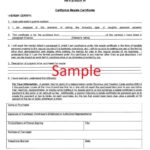Buying a house is the most significant investment of many Americans. Therefore, whenever they sell a home for profit, they have to pay a massive property tax on capital gains.
We know that there is tax redemption if the capital gain doesn’t cross $250,000 for a single filer and $500,000 for a married couple. But how can you avoid tax if your capital gain is more than the above limit?
The good news is that there is a solution available. If you reinvest your money within a specific time into another project, you can avoid a massive tax on the capital gain.
You can say it is a money-saving loophole in the tax law that prevents you from paying tax on your property. You just need to invest your money in another house within a limited time.
Do you want to know the time in which you have to reinvest your income to avoid tax? If yes, you should read the article to the end. Here, we will tell you the time required for reinvestment and the psyche behind this tax redemption technique. We are hopeful that you’ll be able to avoid your property tax by the end of this article.
Property Tax — Applicable or Not
Contents

To check your eligibility for property tax, you have to calculate your property gain first. It is the selling price minus the purchasing costs, purchase expenses, capital improvement costs, insurance payments, casualty losses, deductible closing costs, and selling costs. Many people confuse it with selling price minus purchasing price.
You should minus all the overhead costs from the selling price and note the final amount. The final amount is your capital gain.
If you are a single filer and your capital gain is less than $250,000, you are free from any tax, and you don’t need to reinvest the money to avoid property tax. In comparison, if you are a married couple and your capital gain is less than $500,000, you shouldn’t need to indulge yourself in any reinvestment as you are already free from tax.
However, if you don’t fall under the above scenarios, you have to reinvest your money for buying a new house within the limited span discussed below in the article.
➡LEARN MORE: Everything about Use Tax Exemption/Resale Certificate
Tax Redemption by Reinvestment — Time Span
The wait is finally over. In this section, we will tell you the reinvestment time to avoid property tax. The law, also known as 1031 exchange, allows you to buy the property within 180 days after selling your previous property to avoid tax. If you follow this rule, you’ll be tax-free.
However, you should keep in mind that these days are purely associated with the closing dates. It means that you have to close a new property deal within 180 days of closing the previous property. It implies that you have to initiate the purchase process within the 180-days limit after closing the last property.
You know the best part of this scheme. Closing your property can take several months. In such a case, you get plenty of time to plan your investment. Therefore, if you somehow extend the closing time of the previous property, you will get colossal time for reinvestment.
Why does the Government offer this tax redemption?
Some people think that it is a gap in the law. That is totally wrong. The government does this to encourage sellers to reinvest their money in something else instead of storing it. The reason is that investment always provides more benefits to the government than the money saved in bank accounts.
Final words
Suppose you are not getting capital gain tax compensation on selling your property. In that case, you can save tax by reinvesting your money in another property within 180 days of selling the previous one. You can go above and check the complete details about this tax compensation method now!






